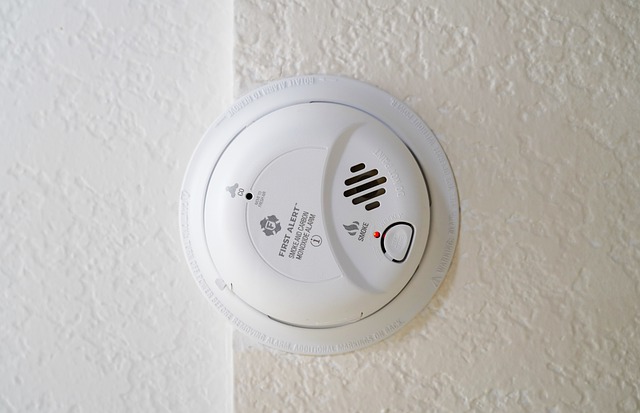New Landlord Rules on Smoke and Carbon Monoxide Alarms
Published on December 30, 2021 by Sarah Mac

Social and private landlords are poised to be subject to stricter rules around smoke and carbon monoxide alarms, as a new legal requirement is set to be introduced which will make it compulsory to fit alarms in all types of rented accommodation, whatever its tenure. The conditions under which smoke and carbon monoxide alarms must be installed are also set to be widened.
Having been approved by parliament, a new set of rules will soon be introduced which will force both private and social landlords to ensure a carbon monoxide alarm is installed in any room of their properties where a fixed combustion appliance is present.
Appliances will include gas boilers, but not gas ovens. In situations where a fixed combustion appliance is newly installed where there wasn’t one before, a carbon monoxide alarm must be fitted by law to accompany it.
A new requirement to repair or replace smoke and carbon monoxide alarms once they have been reported as faulty will also become law. Testing the alarms throughout the tenancy period will, however, remain the tenant’s responsibility. It will then be down to them to report any issues. Mid-term inspections will also flag up any problems with alarms, so that the landlord or managing agent will be made aware of any need to repair or replace them.
At-a-glance summary of the changes to smoke and carbon monoxide alarm regulations
Here is an at-a-glance summary of the main changes to the Smoke and Carbon Monoxide Alarm (England) Regulations 2015:
- Smoke alarms will be mandatory in ALL social rented homes.
- Carbon monoxide alarms will be mandatory in all rooms where a fixed combustion appliance is present, in both private and social rented homes.
- Carbon monoxide alarms will be mandatory on the installation of any heating appliance in all tenures. This is in line with the Building Regulations.
- Landlords will have a legal duty to repair or replace, in a timely fashion, carbon monoxide or smoke alarms that are reported as faulty.
What is the property industry reaction to the change of rules on smoke and carbon monoxide alarms in rented accommodation?
Rental sector commentators have had mixed reactions to the newly introduced rules.
The changes have been welcomed by Propertymark policy manager Timothy Douglas, who felt that they were a vital move in the quest for tenant safety.
“Private landlords have been required since 2015 to provide working smoke and carbon monoxide detectors where applicable in rented property, and the extension of the regulations to encompass gas boilers is a sensible amendment,” he said, adding:
“Propertymark has long called for tenants to receive the same level of protection, irrespective of tenure, and these changes go some way to rectifying that.”
Mr Douglas did comment however that if landlords are to be able to make the required checks on smoke and carbon monoxide alarms, then they need to be given flexibility and better clarity. He believes that instead of setting a firm rule that alarms should be tested on the first day of a tenancy, there should be more freedom, allowing testing to be undertaken ahead of the start of the tenancy.
“The current requirement for alarms to be tested on the first day of a tenancy is impractical for many agents and landlords, and more workable measures are needed,” he said.
MP Eddie Hughes, Minister for Rough Sleeping and Housing, commented that around 20 people are killed every year due to accidental carbon monoxide poisoning, and even more through house fires. For this reason, working carbon monoxide and smoke alarms in rented accommodation are vital.
This is what Mr Hughes had to say: “I’m proud that the new rules being proposed will ensure even more homes are fitted with life-saving alarms. Whether you own your home, are privately renting or in social housing – everyone deserves to feel safe and this is an incredibly important step in protecting those at risk.”
Jim Bywater, Domestic Detection Lead at the National Fire Chiefs Council (NFCC), also aired his views, saying:
“NFCC welcomes the changes which we believe will make many more people safer in their homes. We have campaigned for regulations to ensure that regardless of tenure, homes have adequate lifesaving detection.
“The new regulations will contribute to reducing fire and carbon monoxide casualties and fatalities and bring consistency and greater protection to those living in both private and social rented homes.”
These latest reforms come in on the back of a 2-month consultation. The changes will be brought forward through the Smoke and Carbon Monoxide Alarm (England) Regulations 2015, and the statutory guidance (Approved Document J) supporting Part J of the Building Regulations.

